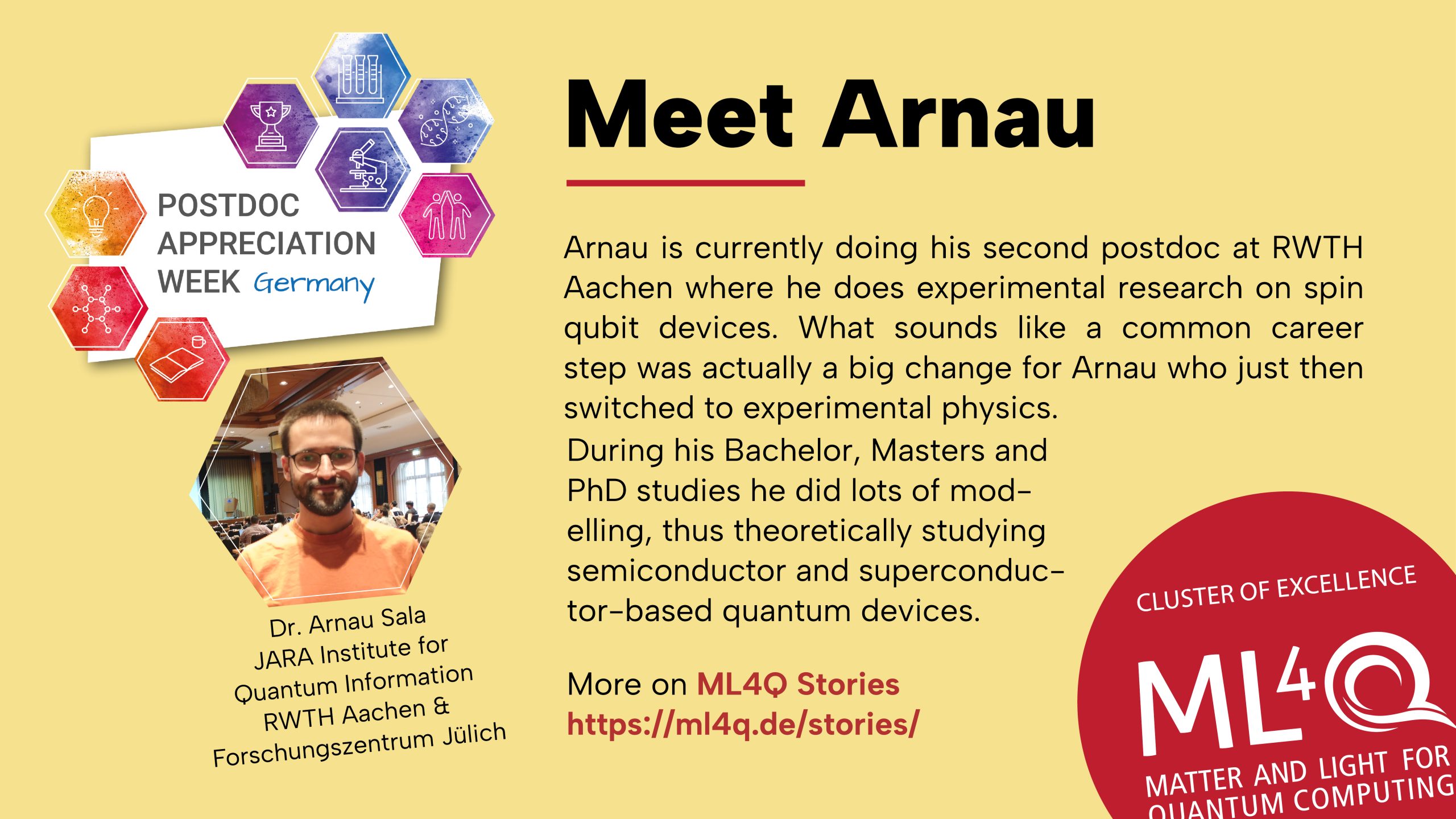It’s Postdoc Appreciation Week!
This week the global scientific community celebrates the Postdoc Appreciation Week (PAW) which was started in 2009 in the US by the National Postdoctoral Association to recognize the significant contributions postdocs and researchers make towards research and academic life in general. The PAW is also widely celebrated in the UK and Ireland and since 2022 also in Germany. The Research and Innovation Services of the Leibniz University of Hannover (LUH) teamed up with the Munich Postdoc Network (particularly Helmholtz Munich and the Max Planck Institute of Biochemistry) to establish this initiative in Germany. This year the PAW Germany coordination team invited researchers and research institutions, postdoc coordinators and research administrators all over Germany to join in creating a special program, events and a social media campaign to honor the incredible work of postdocs!
ML4Q took the chance to feature and recognize the impressive achievements of postdocs who are associated to the cluster. During the week, single postdocs and their profiles will be published on the cluster’s blog ML4Q Stories. Today we invite you to meet Dr. Arnau Sala, postdoc in the JARA Instiute for Quantum Information (Quantum Technology Group) at RWTH Aachen and Forschungszentrum Jülich.
Arnau, how would you describe your career path leading to your current position?
I got my bachelor degree at the University of Barcelona. Back then I was very interested in quantum mechanics, theoretical physics and mathematics. After graduation I moved to The Netherlands and enrolled into the master’s degree in physics at Leiden University. I took the theoretical physics track and I did a master’s research project on transmon-like devices at TU Delft.
I did my PhD at NTNU, in Trondheim, Norway, where I specialized on quantum dot spin qubits: lots of modelling, simulations and theoretical research. After that I did a two-year postdoc at imec, in Belgium, where I got to supervise PhD and master students and even participate in the creation of a new course. My research at imec was also about modelling and theoretical studies of semiconductor and superconductor-based quantum devices.
My next step was a big career change I am very excited about: I switched to experimental physics. I am currently doing my second postdoc at RWTH Aachen, at the institute for quantum information, where I do experimental research on spin qubit devices.
What are you currently working on and what other research areas would you like to discover?
I am currently working on a very ambitious and exciting project: We are developing a new architecture for large-scale quantum computation based on the QuBus. In this architecture, the qubits are single-electron spins that we shuttle for very long distances while keeping the qubit coherence. I participate in the measurements and simulations.
Do you have a favorite scientist?
I can’t say I have a favorite scientist, but I admire all pioneers and those who did ground-breaking research in any field.
That being said, there are two physicists that I look up to. When I met them they were doing a postdoc and now they have a consolidated career. Whenever I am unsure what should be my next move in my career or in a specific project, I try to imagine what they would do.
Name a discovery you wished you were part of!
I want to be part of a team that makes a publicly available large-scale universal quantum computer.
What is your most enjoyable thing about being a PostDoc in academia?
Working with many brilliant students, participating in many fascinating projects and the freedom to explore new ideas.
And what is the most tedious thing about being a PostDoc in academia?
Short deadlines and pressure to publish.
What comes next?
I wish I knew!
